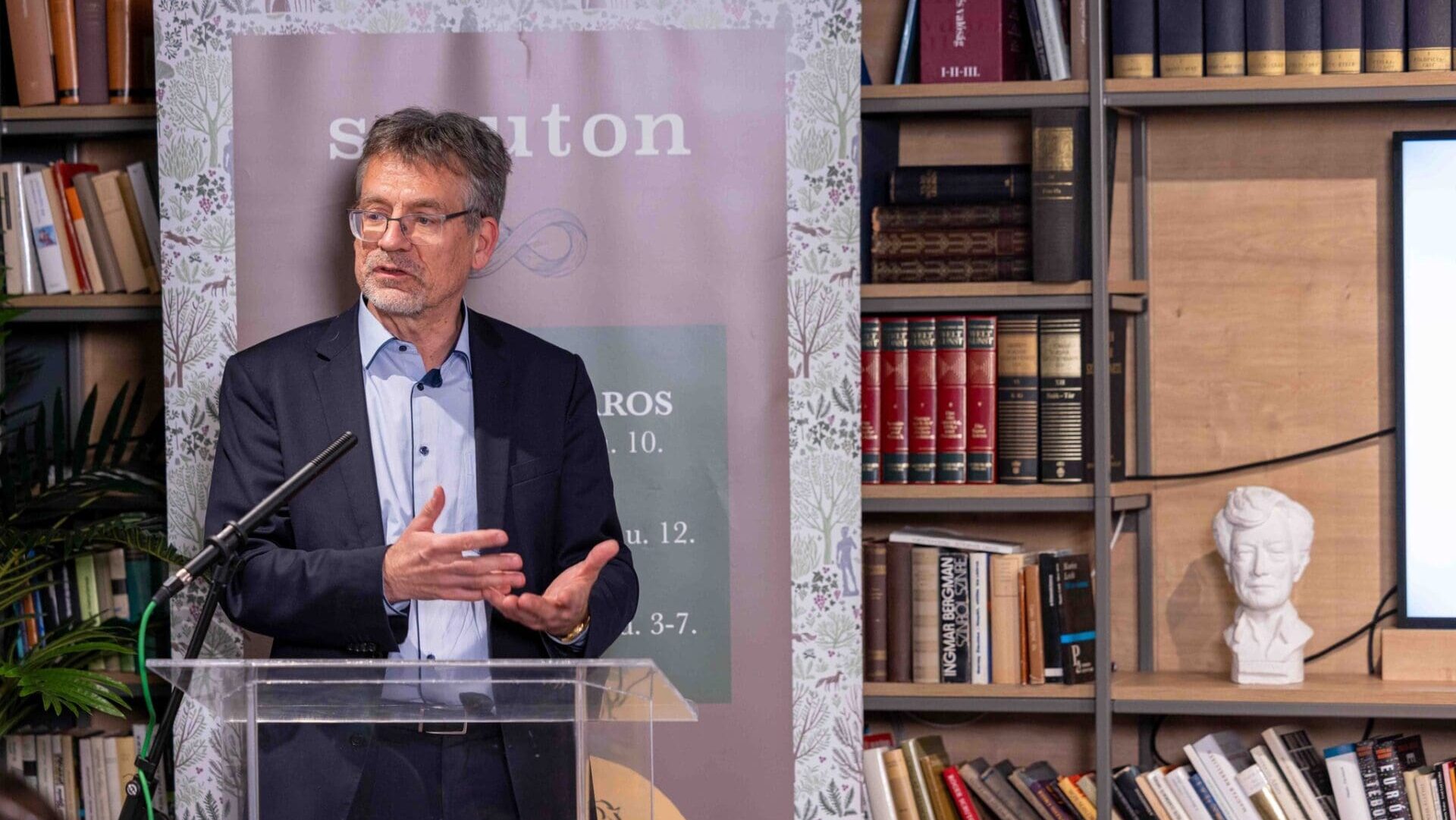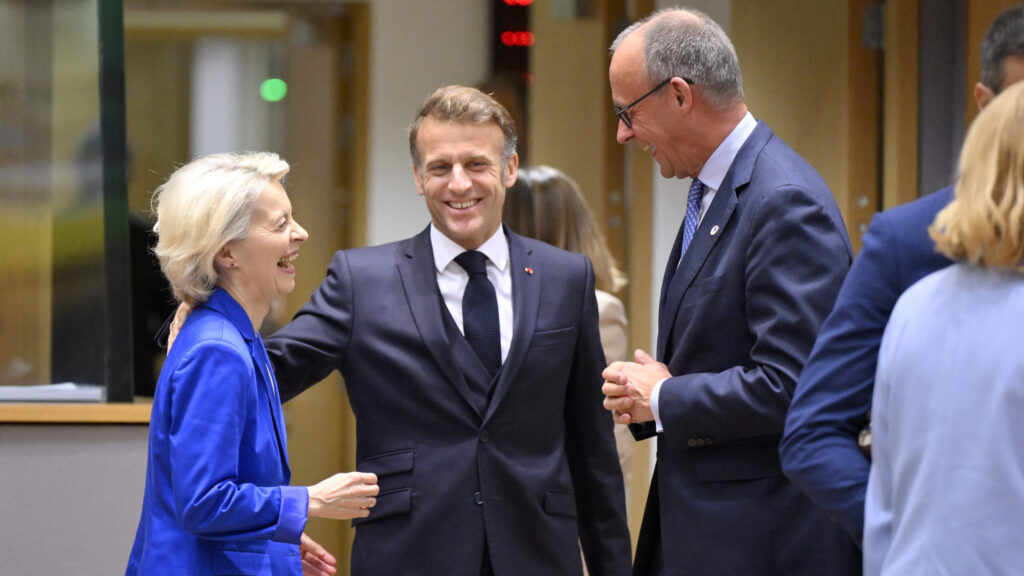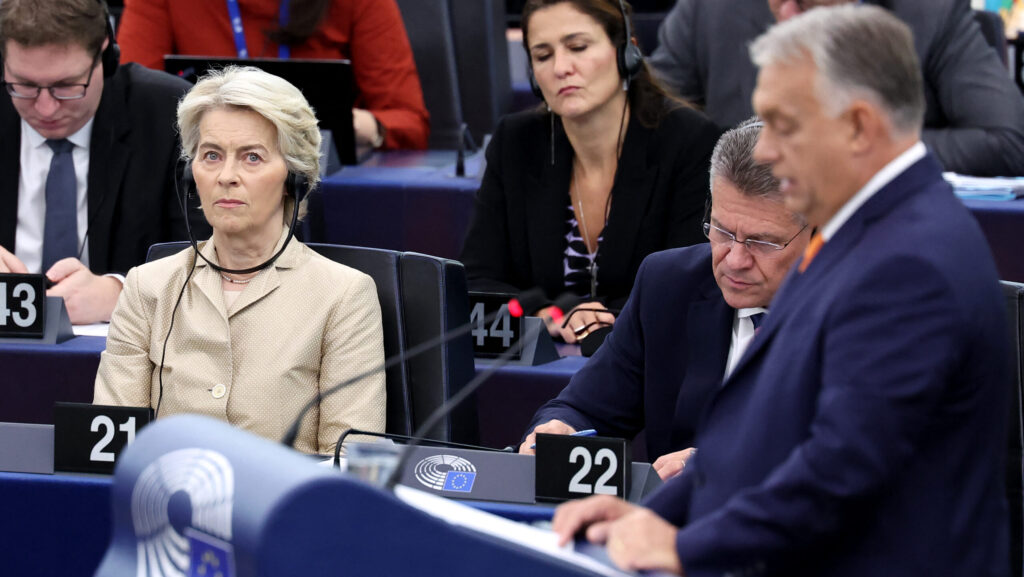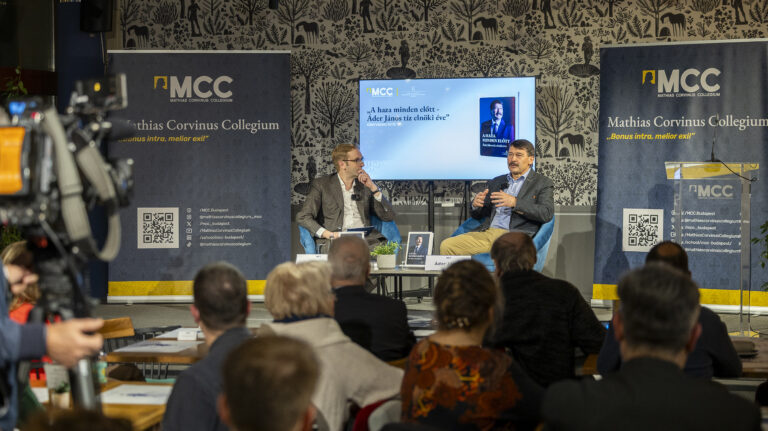It is undeniable that few Britons have exerted as much influence on Central and Eastern Europe as Sir Roger Scruton. The philosopher, who passed away in 2020, maintained numerous connections to the region for over forty years. His conservative ideology has significantly impacted right-wing political parties and movements throughout the area, including those within the Hungarian government. The significance of his legacy in Hungary is exemplified by the dedication of a community space and café in his honour, which serve as venues for a multitude of events related to conservatism on a weekly basis.
That‘s how a memorial workshop titled ‘A Dove Descending’ — Roger Scruton in Eastern Europe for 40 Years took place on Wednesday in Budapest, featuring speakers well-versed in Scruton’s life and work. They shared personal experiences, memories, and reflections on the philosopher’s profound influence on Central and Eastern Europe.
In her opening address, Sophie Scruton, the widow of Roger Scruton, highlighted the reciprocal nature of the relationship between her late husband and the region. She emphasized that
just as Scruton left a mark on the countries of the region, they, in turn, significantly shaped his work, worldview, and thinking.
Sophie Scruton noted that her former husband found himself captivated by the architecture of Central European cities and the serenity of the countryside. However, he was less satisfied by the prefabricated housing estates that emerged as symbols of communism. She underscored his ability to discern the falsehoods behind communist slogans of freedom and equality and his unwavering courage to challenge them. Throughout his travels, Scruton conducted seminars for audiences who believed in the potency of civic institutions and grassroots initiatives in opposition to the authoritarian ideals imposed from above by the state.
Zsolt Németh, Chairman of the Foreign Affairs Committee of the Hungarian National Assembly and a long-time friend of Scruton, also addressed the conference. He noted an intriguing twist of fate: George Soros indirectly facilitated the positive relations between Scruton and Hungary, as Németh, along with many other prominent figures of the Hungarian right, benefited from studying in Britain on Soros scholarships.
Németh highlighted one of the most significant outcomes of Scruton’s influence on Central Europe:
the emergence of a new right-wing movement on the remnants of communism.
‘Roger Scruton’s legacy and his commitment towards us have become a key factor in political life and civic cooperation,’ he stated.
Of course, Scruton’s views were not well received by the left, particularly with the rise of the woke ideology in the West. Scruton became a public enemy—although not in Central Europe. According to Németh, in the last years of his life, the British philosopher was subjected to unprecedented character assassination, branded a racist and Islamophobe. His good relationship with Hungarian Prime Minister Viktor Orbán was considered one of his greatest sins by the progressive media. Consequently, he was dismissed from his position as adviser to the British government in 2019.
As a symbol of the good relations between Hungary and Roger Scruton, Viktor Orbán presented the British philosopher with the Order of Merit of Hungary in 2019. ‘We have learned from our beloved professor that conservatism is anything but an ideology, and is in fact the opposite of ideology,’ the prime minister said at the ceremony. He added:
‘Scruton was not only a philosophical opponent of communism but also an ardent and active ally of anti-communist forces in Central and Eastern Europe. He helped us in so many ways that we cannot even begin to list.’
Ferenc Hörcher, Head of the Institute for Political Science and Political Philosophy at Ludovika University of Public Service, reminisced about the pivotal period of regime change when Central European states sought to reclaim their national identities following the tumultuous era of communism. During this critical time, Scruton offered substantial support and guidance to these nations. The British philosopher actively engaged in social debates in Hungary, using his opinion pieces to encourage progress among various political actors, and fearlessly defended his viewpoints despite facing opposition.
Scruton’s critique extended, for example, to the late Alliance of Free Democrats (SZDSZ), particularly for their decision to form a coalition with the Socialists, a move he sharply criticized. However, Hörcher emphasized that while Scruton openly supported conservative governments and their decisions rooted in conservatism,
he didn’t shy away from criticism when he believed the leadership was acting inappropriately.
In addition to his political activities, Roger Scruton embodied the essence of a true Renaissance figure: he authored over fifty books, primarily philosophical treatises on conservatism, yet also delving into other topics such as wine culture, hunting, or the philosophy of sexual desire. Furthermore, Scruton showcased his artistic prowess by composing two operas, one of which, titled Anna, was presented at the event by Ákos Windhager, Cultural Manager of the Hungarian Scruton Hub.
Scruton’s brilliance and his profound connection to Central Europe are evident not only in the overarching narrative of his operas but also in the intricate melodies infused with regional nuances. For instance, Anna, set against the backdrop of Prague during the fall of communism, incorporates numerous subtle elements that distinctly resonate with the region.
In addition to the aforementioned speakers, other notable speakers at the event included Chairman of the CEC Group Marek Matraszek; Mutaz Ahmed, the current Editor-in-Chief of the Salisbury Review founded by Roger Scruton; Balázs Mezei, Professor at the Institute of Social and Political Sciences at Corvinus University; and Mihály Rosonczy-Kovács, Director of Foreign Affairs at the Nézőpont Institute.
Related articles:







